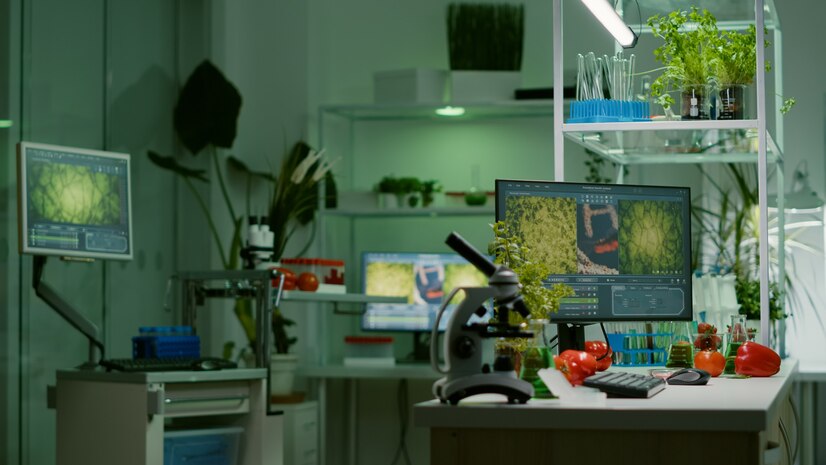
In today’s world, we are grappling with a series of unprecedented challenges that threaten our environment and health, from the escalating impacts of climate change to the emergence of novel pathogens. It has become imperative to explore sustainable and innovative solutions to these problems. At the intersection of biology and technology, biotechnology emerges as a formidable ally in this quest. The latest innovations in this field are pioneering a path to a sustainable future, especially in critical areas such as food security and healthcare, showing us how we can radically alter our approaches to these pressing global concerns. John H. Abeles, General Partner at Northlea Partners LLLP in the US, highlighted the substantial investment potential within this dynamic sector at a recent meeting of the Global Investment Leaders Club (G.I.L.C.). He pointed out, “We are currently in an optimal period for discerning investors to pinpoint and back companies that are at the forefront of showcasing promising developments through extensive clinical studies and proofs of concept, yet are still undervalued. This is a singular chance to contribute to groundbreaking biotechnological projects that seek to tackle and alleviate some of the gravest global issues.“
Biotechnology’s Role in Revolutionizing Agriculture
One of the most pressing challenges of our time is ensuring food security, a concern that is intensified by the world’s rapidly expanding population. According to projections by the Food and Agriculture Organization (FAO), there is a need for a 60% increase in global food production by 2050 to meet the dietary requirements of the global populace. While traditional farming methods are crucial, they might not suffice to meet this escalating demand due to issues like pest infestations, extreme weather events and shrinking arable land. Biotechnology holds the key to transforming agriculture. With breakthroughs in genome sequencing and CRISPR technology, we are witnessing a revolution in agriculture. Researchers are now able to alter the genetic makeup of crops, leading to strains that not only produce higher yields but also can withstand adverse conditions. These genetically modified crops are more robust against pests and diseases and have greater resilience to climatic changes. Innovations are turning the idea of rice that thrives in flood conditions or maize that withstands droughts from a futuristic vision into today’s reality. These advancements not only ensure a stable food supply but also reduce the reliance on chemical pesticides, enhancing environmental health.
Biotechnology’s Advances in Healthcare
Beyond agricultural improvements, biotechnology is also making significant strides in healthcare, notably through gene therapy. This technique, which involves modifying or replacing a person’s DNA to treat or prevent diseases, has moved from being a theoretical possibility to a viable treatment option for various conditions, including genetic disorders and cancer. In 2023, we saw significant progress in treatments for obesity, with the development of GLP-1 analogues and experimental gene therapies. These advancements represent a shift towards tackling obesity by understanding its metabolic and hormonal bases. The significance of gene therapy is also reflected in its market growth. Estimated at around USD 3.8 billion in 2019, the global gene therapy market is expected to reach USD 13 billion by 2026. This growth signifies the increasing trust in these therapies by the medical community and patients, suggesting a future where global disease burdens could be substantially reduced, leading to healthier societies and more robust healthcare systems. Mazin Gadir, Director of Strategic Partnerships at IQVIA in the UAE, shed light on this trend at a G.I.L.C. event, noting, “The growing investment in drug discovery and the wider pharmaceutical, life sciences and biotech sectors is introducing complex challenges. Yet, this climate also creates collaborative opportunities for startups to merge with research initiatives, resulting in the birth of innovative and holistic health solutions.“
Biotechnology and Environmental Sustainability
The influence of biotechnology extends to environmental sustainability efforts as well. The development of biofuels from biological materials offers a greener alternative to fossil fuels, with the potential to markedly cut down greenhouse gas emissions. Moreover, advances in carbon capture technologies within the realm of biotech present effective ways to decrease atmospheric CO2 levels, tackling a key contributor to global warming. Furthermore, biotechnology plays a crucial role in biodiversity preservation through conservation technologies, like the genetic revival of endangered species and bioremediation of polluted habitats. These applications demonstrate biotechnology’s multifaceted role in not only improving human health and ensuring food security but also in protecting our planet’s ecological equilibrium.
Conclusion
In essence, biotechnology is a foundational pillar in the journey towards a sustainable and thriving future. Its contributions to food security, healthcare advancements, climate change mitigation and biodiversity preservation highlight its essential role in solving some of the most urgent global challenges. As we navigate the complexities of balancing growing demands with limited resources, the innovations led by biotechnology shine as a beacon of hope, guiding us towards a more sustainable, healthier and fair world for the generations to come.











